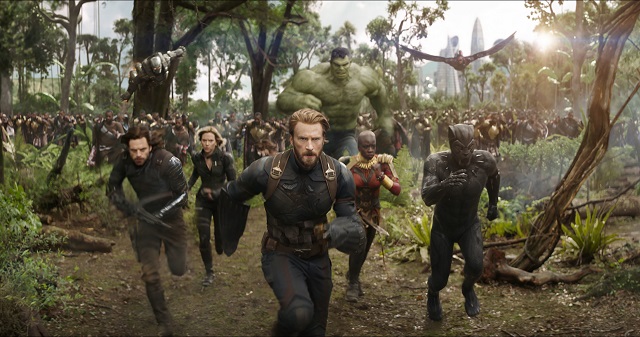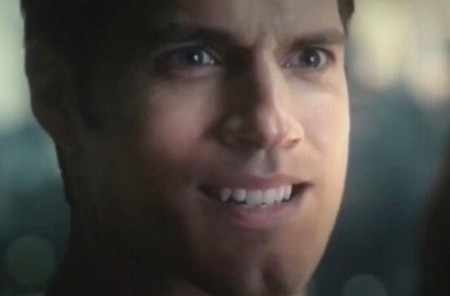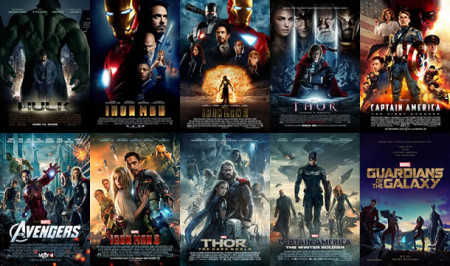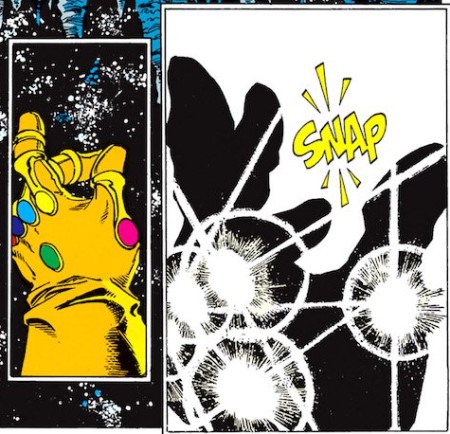
So, The Force Awakens is no longer the top opening-weekend earner at the box office here in the United States. Lucasfilm’s sister company Marvel has taken that crown with their latest effort, by far their biggest movie to date. Avengers: Infinity War is a seminal film not only for how much money it has made but also what it represents. Ten years of steady buildup has finally exploded into an epic movie on a scale that few others in history can match, in terms of both scope and budget.
Of course, the runaway success of the Avengers’ latest film has drawn inevitable comparisons between the Marvel cinematic franchise and Star Wars. Directly comparing a movie like Avengers: Infinity War to a movie like, for instance, The Last Jedi, isn’t a useful exercise since they are very different movies coming out at very different times for each franchise. However, I do believe there are things that Star Wars as a franchise can learn from both how Marvel has gotten themselves to this point, and from Infinity War in itself.
Before we go on, please know that there will be spoilers discussed below regarding Infinity War. If you have not seen the film, go ahead and close the window now and come back when you’ve had a chance to go and see it.
The Franchise
First, let’s recognize right out of the gate that Marvel and Lucasfilm’s strategies for the expansion of their film franchises are very different. Marvel has been making their own movies at an ever-increasing pace for the past decade, including coming out with four solo productions and one co-production within the last year alone. Lucasfilm, since its acquisition by Disney in 2012, is about to release its fourth movie in six years, and thus far they’ve shown no desire to accelerate that pace to more than a movie a year.
Let’s also dispel the myth that one film a year is somehow slow. One movie a year coming out of a single studio with the sort of scope and budget that a film like Star Wars requires is plenty fast. The only reason it seems slow is that Marvel’s portfolio has ballooned at an astonishing pace that’s left every other franchise in the dust. Trying to catch that same lightning in a bottle is a foolish exercise, and I’m glad that Lucasfilm seems to realize that. Better one well-crafted film a year than slapping CGI mouths on principal actors’ faces when they can’t shave for reshoots.

Marvel has a distinctive “house style” with their movies, but they do enough to diversify their portfolio with new narratives and directors that they still get butts in seats even for characters who aren’t as well known. Star Wars is still inextricably linked to both George Lucas’s directorial and writing style and the Skywalker family saga. The former is going to take time and more movies to get past, and the latter it’s only just starting to move beyond with films like Rogue One and Solo.
How well their efforts at diversifying their cinematic output are succeeding is still an open question in many ways. But there is an apparent hard cutoff: after Episode IX, no more films in the connective saga have been announced. Other films have been announced or discussed, all of them so distant that we know nothing about them, except that they will not be connected to the Skywalkers or the known story of Star Wars. This is exactly what they need to do. Star Wars has to take risks and go to new places if it’s going to continue to survive, but whether it will work remains to be seen.
The Story and Continuity
But let’s talk about Infinity War specifically. Infinity War is the collision course for Marvel’s whole franchise up to this point, roping in every divergence, every stray character, and bringing them all smashing together with incredible force. It’s the culmination of a decade of plot-threading and is every bit the bombastic affair that said situation calls for. This does create a problem though, namely that unless you have been party to the rest of that buildup, and have seen most, if not all of the other films in the franchise, Infinity War doesn’t have nearly the impact that it should.
At a conservative estimate, you would need to watch five other movies for the plot to begin to make sense, and upwards of ten to have connections with the characters and understand who they are. If you haven’t seen any of them, well, it’s all just sound and fury, signifying nothing. Infinity War exists only as a culmination of the rest of the Marvel film franchise, as a standalone film it does a very poor job of justifying its own existence. It doesn’t have to, its expected to some extent that an installment this late in the franchise requires some foreknowledge in order to make sense, but it’s still worthy of note because the franchise is going to keep going and this problem could yet get worse.

Star Wars has gotten really heavy on continuity in recent years, so this should be a concern for them as well. The observance of “canon” is almost a sacred rite of the franchise’s fandom, even above and beyond what Marvel has done. If Star Wars made the play that Marvel did, giving us a massive convergence of the continuity all in a single film, it would incomprehensible, a mush of characters and plots from movies, comics, novels and video games all jammed in together that would thrill the continuity purists and be meaningless gibberish to everyone else.
Marvel won’t care to learn any lessons with the mountains of money Infinity War is making, but Star Wars should be more cautious, especially when bringing characters from outside media into the films. The Star Wars universe is expansive and getting bigger, and not everyone is able to keep up. Let’s take a visible example from a recent movie. Saw Gerrera popping up in Rogue One came off as just a bit part for Forest Whitaker to overact unless you had at least some familiarity with The Clone Wars and understood who the character was and what his backstory entailed. Saw wasn’t central to the plot by any means, so knowing his backstory isn’t necessary, but it does add a good deal more texture and life to his part of the film.
The story should always have primacy over continuity nods. The deeper the continuity lockout becomes, the more insular a franchise becomes and the less inviting it is for new viewers. For the long-term survival of Star Wars, it needs to remain open and welcoming; each new movie could be someone’s first. Having roles like Saw’s, colorful enough to intrigue but not necessary to the larger story, is an ideal way to handle these things.
The Characters
Which segways nicely into one of Infinity War’s greatest strengths and its second-greatest weakness: its characters (we’ll get to its greatest weakness later). With an expansive and diverse universe of characters to draw from for their great finale, Marvel went for the gusto and threw just about everyone in, protagonists and secondaries alike. And it’s to their credit that every one of those characters looks, acts and talks like they did in their own movies, and the interaction between these hitherto separate characters provides a lot of the movie’s delight and fun.

As I mentioned, though, this wealth of characters also creates a problem: Infinity War has too many characters jammed in together to allow them any actual agency over the plot. The lion’s share of the screentime and development goes to Thanos himself, building the villain up to increase him as a threat and give him motivation. It’s necessary for the film as a whole, but because so much of the film is informed by his actions, everyone else does little more than exist. Thanos does something, other characters react, and the movie moves forward. Character arcs from previous movies come to a screeching halt or are thrown off the rails entirely.
The number of Star Wars characters with true three-dimensional arcs is pretty limited. If a character in Star Wars is lucky they are well-written enough for their sole appearance to be satisfying, or else they stick around for more than one movie to be fleshed out. But most see their expansion in books and comics, leaving them little more than a name and a few lines of dialogue on the screen. Star Wars simply doesn’t have the wealth of well-rounded recognizable characters that Marvel does, so they have to be careful how they use the ones that they do have.
The last thing that we want for Rey, Poe, Finn and Kylo Ren is for them to all get sidelined in Episode IX for some new character so we can establish them as a threat or as a hero. We have yet to get the climax of the stories that have already been started, and they cannot afford to stand still. Counting on people to read books to flesh characters out is simply not good enough, we need to keep them in the cinematic spotlight where they belong.
The Ending (MAJOR SPOILERS)
Of course, all of this discussion about Infinity War is dancing around the elephant in the room: its ending. Remember that I said the overabundance of characters was only Infinity War’s second biggest problem? Well, this is the biggest.

To recap, Thanos prevails against the heroes, completes the Infinity Gauntlet and with a snap of his fingers wipes away half of all life from the universe, including a pretty decent percentage of the film’s cast. It’s one of the few times in Marvel movies that the villain unquestionably, unequivocally, wins. Then he sits back with a smile and we cut to the credits, and the audience leaves the theater feeling hollow and broken. Quite a daring cliffhanger, no?
I’ll tell you what I felt as I left the theater. I was laughing. Thanos’s victory and the intended gut-punch of an ending meant nothing because I know that as daring as it seems to kill off a huge chunk of your named cast of characters, there’s another film coming that will reverse it. Avengers 4 will resolve the cliffhanger and give us resolution, likely with someone else taking up the Gauntlet and using it to reverse what Thanos has done.
Marvel has done relatively well up to this point in terms of characters who are dead actually staying dead, of making actions have consequences. Infinity War breaks all of that wide open by being too sweeping, killing too many characters for us to take the deaths seriously, and we’re suddenly reminded that this is ultimately a comic book universe where death is cheap and that which has been done can easily be undone.
And that’s, ultimately, the thing that Star Wars needs to learn from Infinity War: don’t paint yourself into a narrative corner and thereafter reset your own plot to get out of it. If you’re going to be daring, be daring!
Remember back at the top, where I said that I wasn’t going to directly compare Infinity War to The Last Jedi? Well, I lied, let’s compare Infinity War to The Last Jedi. Because The Last Jedi was daring. It completely derailed many assumptions people had about the direction of the sequel trilogy, including the revelation of Rey’s parentage and killing Supreme Leader Snoke, and set up the plot for Episode IX to go in any number of unexpected directions.
Suggestions have been raised that Episode IX could work to walk those events back, for example by having Snoke somehow survive a la Maul in The Clone Wars, or by revealing that Kylo Ren was using the Force to somehow “gaslight” Rey regarding her parents’ identities. I would argue that undoing those decisions or any decisions made by the film cripples the story of the sequel trilogy overall by interrupting the narrative flow and forcibly “re-railing” the story onto more predictable tracks.
Episode IX is set up in a way that should force J.J. Abrams and his creative team to be daring and push the envelope on the conclusion to their series beyond just aping what came before. I hope they don’t follow Infinity War’s example and remake the universe with a snap of their fingers.
